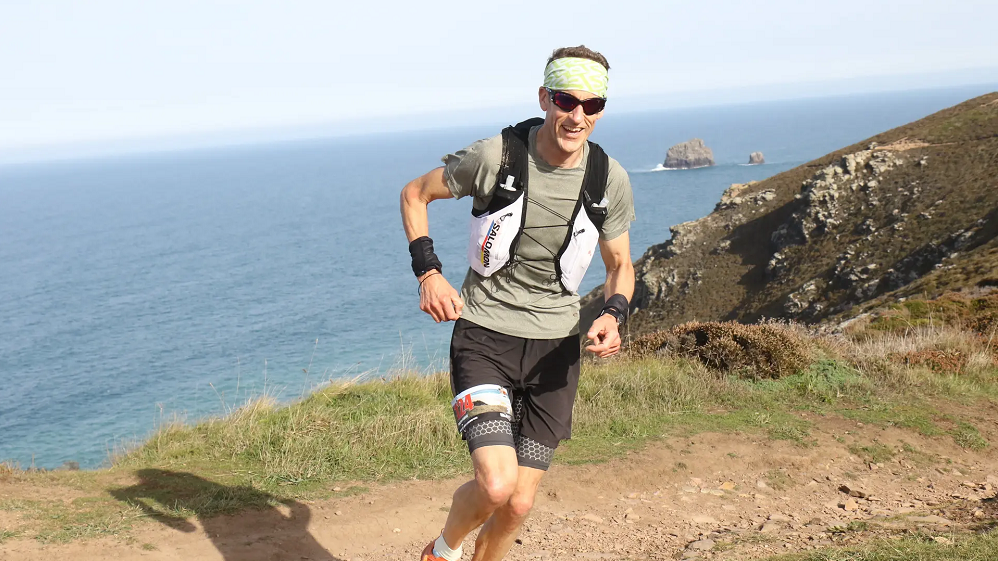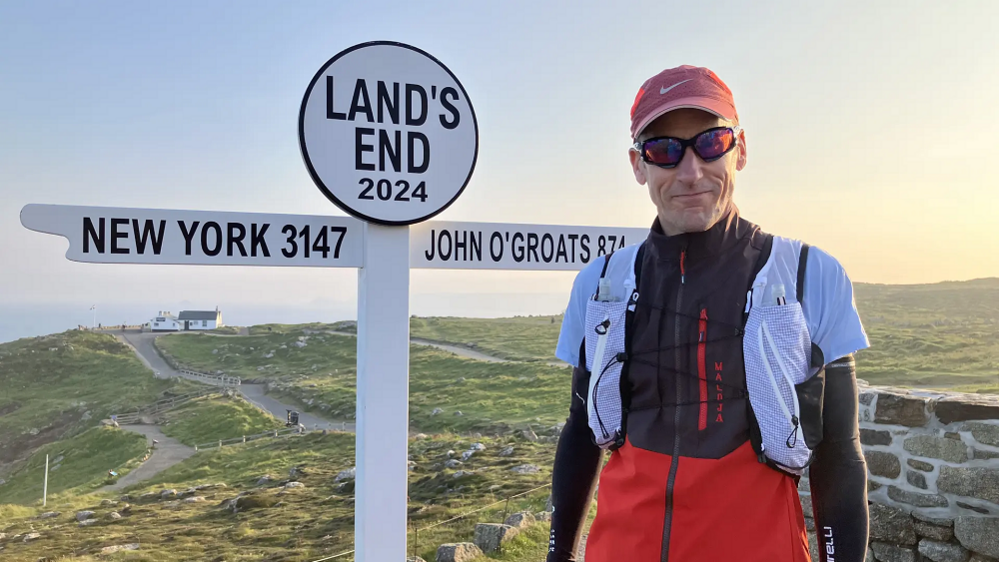Former Red Arrow urges people to get eyes checked for glaucoma

Martin Higgins found out he had glaucoma when he was 30, but had no symptoms
- Published
A former Red Arrows' pilot who has an eye condition that can lead to sight loss is urging people to get tested early to ensure it is caught.
Martin Higgins, known as Higgy and originally from Bristol, found out he had glaucoma - which involves damage to the optic nerve - when he was 30. He said that eye check "saved my sight".
He is now running more than 1,000 miles from Land's End to John O'Groats to raise awareness of the condition and £50,000 for research by the charity Glaucoma UK.
Mr Higgins, who is still a member of the RAF, said many people may have glaucoma without knowing it.
"I had no symptoms - I wore glasses that was just normal," he said.
"Over 700,000 people in the UK are affected by glaucoma but half of them are unaware of their condition.
"The mission is clear: to end preventable glaucoma sight loss."

Mr Higgins has already started his run between Land's End and John O'Groats
Mr Higgins said while he no longer flies, medically, he could if he wanted to.
A health check in 2003 picked up on the condition and two decades later, he still uses special eyedrops.
"Each day I put an eyedrop in each eye, morning and evening," he said.
"After 20 years, it's just like cleaning your teeth. Every six months or so I have an eye check."
But he said left unchecked, "it can lead to a very gradual loss of sight".
"When it's gone, it's gone, you can't get it back," he added.
'More research needed'
Mr Higgins said he has no damage from the condition which he puts down to the early diagnosis.
He added it is important to talk to family too, as there can be genetic risk factors that underlie early-onset glaucoma.
"It could be useful to ask parents and grandparents if they have glaucoma," he said.
Mr Higgins now wants to raise money for more research.
"About 40 years ago, the treatments were a long way from where they are now," he said.
"If we could find a cure, we could help a whole bunch of people at the moment, who might not even know they have the condition."
Follow BBC Bristol on Facebook, external, X, external and Instagram, external. Send your story ideas to us on email or via WhatsApp on 0800 313 4630.